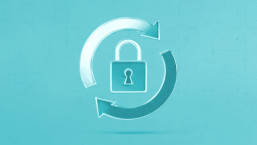What happens after you share data online, and others re-share it, etc.? As data becomes increasingly inter-connected, with multiple parties touching the same data, Internet users are starting to wonder: who DOES have access to their data? Are they acting in your best interest? And who should be checking to make sure they do?
The online world is big, bewildering and interconnected, with cyber-attacks and other threats making frequent headlines. According to a recent online survey conducted by Harris Interactive on behalf of ESET from August 25-27, 2011 among 2,202 adults ages 18 and over, we see that more than half (53 percent) of U.S. online adults have decreased their level of trust in large organizations that have recently suffered large-scale data breaches and their ability to protect their personal information. It seems that when it comes to online security, customers are starting to notice which companies appear to be protecting their data, and which companies are still further behind on the learning curve.
A whopping 91 percent of U.S. online adults feel vulnerable to a cyber-attack, no small number. 27 percent feel most vulnerable on social networks. People are starting to think twice about sharing each and every detail on Facebook, Twitter and other social networking websites, even as the rate of adoption by new users continues to be strong. Also 20 percent feel most vulnerable while online shopping. As a result, it may be that online shoppers are looking for more signs that they’re doing business with reputable vendors.
When asked who should take prominent roles in protection and prevention, 84 percent of U.S. online adults believe the government holds at least some responsibility for protecting their online identities. Additionally, 80 percent of U.S. online adults believe that they themselves hold a lot or a fair amount of responsibility for preventing cyber-attacks and protecting their online identity. Clearly, Internet users feel the burden should fall on their own shoulders, but the government should do its part as well.
When it comes to education, 91 percent of U.S. online adults believe cybersecurity education would be most successful as part of a student curriculum, and more than half (51 percent) of U.S. online adults believe that cybersecurity education would be most successful at the junior high/high school level. Some feel it should start even sooner (34%).
How should the government treat cyberattacks? The survey shows nearly two-thirds (61 percent) of U.S. online adults feel that cyber-attacks on U.S. government agencies and their websites should be considered an act of war--pretty strong sentiment indeed.
These most recent findings confirm what we’ve been seeing for some time, protecting your data online is becoming a much more important responsibility, and Internet users are taking note. As customers and businesses alike scurry to backfill the security voids, it might be a good time to take inventory of your own security stance. A proactive approach is much less painful than the alternative may be.
Survey Methodology
This survey was conducted online within the United States by Harris Interactive on behalf of ESET from August 25-29, 2011 among 2,202 adults ages 18 and older. This online survey is not based on a probability sample and therefore no estimate of theoretical sampling error can be calculated. For complete survey methodology, including weighting variables, please contact ESETpr@schwartzcomm.com.




